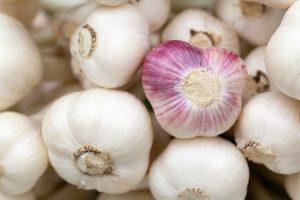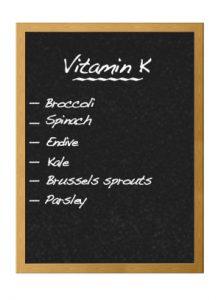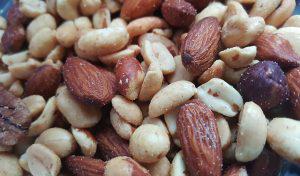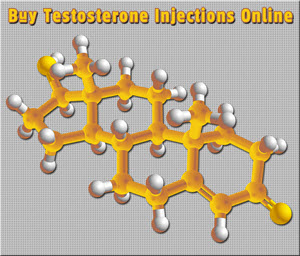Simple Dietary Changes to Battle Low-T
Modern-Day Society is Stealing Your Testosterone
Fact: Higher testosterone levels mean more muscle mass, lower body fat, and stronger bones. Additionally, optimum T levels indicate healthy libidos, improved cognitive abilities, and (naturally) higher levels of sports performance.
Video Link: https://vimeo.com/282905692
Video Download: Click Here To Download Video
Video Stream: Click Here To Stream Video
Fact: your natural testosterone production is under attack. Here's a brief list of things that can negatively affect T levels, ranging from dietary/lifestyle choices to environmental factors:
- Extreme low-calorie diets. Very low-calorie diets used to melt fat or followed by athletes desperate to make weight.
- Tobacco smoke, both direct and second-hand. Cigarette smoke contains a toxic substance called cadmium, an environmental pollutant with no distinct taste or smell that's been shown to lower testosterone levels.
- Alcohol. The body breaks alcohol into acetaldehyde, which may adversely affect the Leydig cells of the testicles to reduce testosterone production.
- Environmental pollutants, such as those that are common in industrial areas where metal welding, lead, or copper smoke are present.
Four Foods to the Rescue
Luckily, you can improve your testosterone profile through the consumption of some natural nutrients and chemical compounds.
Studies have shown that minor nutritional interventions can boost testosterone levels in as little as four weeks. Like the cavalry to the rescue, foods rich in garlic, magnesium, vitamin K2, organ meats, shellfish, leafy vegetables, and zinc will boost your testosterone naturally.
Also, consider taking a zinc/magnesium supplement. Here are 4 "must-add" foods...

1. Garlic. Studies have shown that both acute and chronic ingestion of garlic can have proliferative and restorative effects on serum testosterone levels.
It's thought that this is due to a chemical in garlic known as diallyl sulfide.
In one study involving rats on a high protein diet, garlic was shown to increase testosterone levels while lowering cortisol levels. Cortisol is commonly referred to as "the stress hormone."
Garlic increased levels of the luteinizing hormone in the plasma, which in turn coaxed the testes into producing more testosterone.
Suggested Intake: 900 mg daily, preferably split into multiple dosages throughout the day.

2. Magnesium. Numerous studies on men have shown magnesium to boost total testosterone.
Unfortunately, deficiencies in magnesium are common because people don't get enough of it from dietary sources.
What magnesium does is increase the bioavailability of testosterone. As a natural process of aging -- or as a consequence of low protein diets -- sex hormone-binding globulin (SHBG) concentrations increase, and these globulins bind with testosterone.
The result? It becomes unavailable to the body.
However, one study showed that testosterone preferred binding to magnesium rather than SHBG, thus preserving free levels of testosterone, and hence its anabolic (building) effects, too.
In another study, 30 males, aged 18-22 (both sedentary and active), received 10mg/kg of magnesium for four weeks and it elevated their free and total testosterone values.
Interestingly, those individuals participating in intense exercise activities were observed to have even higher increases in testosterone levels in conjunction with magnesium supplementation.
Suggested Intake: If you were to copy the amounts used in the above study, you'd take 10 mg of magnesium per kg body weight, so a 100 kg person (about 220 pounds) would take one gram daily.
That may be excessive to many individuals, especially those just beginning to take a magnesium supplement. Better to use more standard doses. The RDA is about 420 mg a day for an adult male, so to enhance testosterone production, experiment with 750 mg a day for a few weeks and see how you feel.
The Best Food Sources of Magnesium:
- Dark green vegetables (spinach, broccoli, kale, collard greens, swiss chard)
- Fish (halibut, salmon, mackerel, tuna)
- Nuts (cashews, peanuts, almonds, brazil nuts)
- Seeds (pumpkin, sunflower, and flax seeds)
- Legumes (black beans, edamame, kidney beans)
- Avocados
- Bananas
- Raisins

3. Vitamin K2. In addition to serving as a “traffic cop” for your bones by directing calcium to your bones and prevent it from going where it can do damage: your organs, joints, and arteries.
Vitamin K2 also increases the activity level of testosterone-synthesizing enzymes.
The chemical menaquinone-4 (a synonym for vitamin K2, the primary storage form of the vitamin in animals) has been shown to stimulate testosterone production through the activation of protein kinase while also being involved in steroidogenesis in the testes.
Suggested Intake: To duplicate the amount used in one critical study with rats, you'd have to use 12 mg per pound of bodyweight, which is a considerable amount.
Still, there's good reason to believe that much smaller doses, around 30 to 50 mg per day (which is still a lot), might also raise testosterone levels.
Dietary Sources of Vitamin K2:
- Hard and soft cheeses
- Egg yolks
- Butter
- Animal organs (chicken and cow liver)
- Fermented foods (sauerkraut, natto, miso, kimchi)

4. Zinc. Low testosterone is linked to zinc deficiencies as androgen receptors are often altered in zinc-deficient individuals.
Adding zinc to the diet has been shown in various studies to increase levels of luteinizing hormone, a pituitary hormone that stimulates testosterone production. Studies have also shown zinc to be an active aromatase inhibitor, which can block the conversion of testosterone to estrogen.
Suggested Intake: 40 mg daily
Dietary Sources of Zinc:
- Shellfish (oysters, crabs, lobster, shrimp)
- Beef
- Pork
- Chicken
- Dairy products (Swiss cheese, yogurt, milk, cheddar cheese)
- Legumes (baked beans, kidney beans, chickpeas, white beans)
- Oatmeal
- Nuts (cashews, almonds, pistachios, pecans, walnuts)
- Seeds (pumpkin, squash, pine nuts, flax seeds)
The Takeaway
To make sure your levels of testosterone are at the high levels you need, make sure you consume an adequate amount of calories for your activity levels with an emphasis on the foods listed above, and the use of a zinc/magnesium supplement like ZMA.
Reference
Best foods for increasing low testosterone
Contact Us Today For A Free Consultation

- Testosterone for Women [Last Updated On: December 1st, 2023] [Originally Added On: December 29th, 2013]
- Testosterone Androgen [Last Updated On: December 11th, 2023] [Originally Added On: December 29th, 2013]
- Testosterone and Body Building [Last Updated On: December 14th, 2023] [Originally Added On: December 30th, 2013]
- Testosterone Levels [Last Updated On: December 6th, 2023] [Originally Added On: December 31st, 2013]
- Testosterone Gel, Cream, and the Testosterone Patch [Last Updated On: November 28th, 2023] [Originally Added On: December 31st, 2013]
- Buy Testosterone | Types of Testosterone Replacement Therapy Programs, Injections, Cream and Gel [Last Updated On: December 13th, 2023] [Originally Added On: December 31st, 2013]
- Buy Testosterone Injections Online, Testosterone Prescription for Low T, Testosterone Replacement Therapy [Last Updated On: October 16th, 2020] [Originally Added On: January 1st, 2014]
- Aging and Testosterone Replacement Therapy [Last Updated On: December 12th, 2023] [Originally Added On: January 3rd, 2014]
- What Causes Low Testosterone [Last Updated On: December 10th, 2023] [Originally Added On: January 7th, 2014]
- Hormone Levels in Men [Last Updated On: December 4th, 2023] [Originally Added On: January 12th, 2014]
- Hormone Level Testing [Last Updated On: November 29th, 2023] [Originally Added On: January 13th, 2014]
- Types of Testosterone Products and Delivery [Last Updated On: December 8th, 2023] [Originally Added On: January 22nd, 2014]
- Testosterone Therapy Helps Men with Low-T Ward Off Prostate Cancer [Last Updated On: May 29th, 2024] [Originally Added On: December 29th, 2019]
- The Importance of Dietary Fat for Testosterone Production [Last Updated On: July 8th, 2024] [Originally Added On: January 2nd, 2020]
- Testosterone Deficiency and Low-T at Epidemic Levels Among Men in the United States [Last Updated On: May 27th, 2024] [Originally Added On: May 17th, 2020]
- The Effects of Testosterone Therapy on Male Patients -- Who Should Use Testosterone? [Last Updated On: December 20th, 2023] [Originally Added On: June 16th, 2020]
- Does Ibuprofen Contribute to Low Testosterone? [Last Updated On: January 27th, 2024] [Originally Added On: June 20th, 2020]
- The Link Between Testosterone and Lower Rates of Autoimmune Diseases Among Men [Last Updated On: January 30th, 2024] [Originally Added On: June 21st, 2020]
- Weight Cycling and the Problem with Crash Dieting [Last Updated On: April 8th, 2024] [Originally Added On: July 30th, 2020]
- Reexamining Bio-Identical Testosterone Therapy [Last Updated On: June 18th, 2024] [Originally Added On: August 12th, 2020]
- Understanding how Muscle and Fat Impact Body Mass, Weight, and Health [Last Updated On: April 15th, 2024] [Originally Added On: August 25th, 2020]
- The Role of Nitric Oxide in Cancer Proliferation And Prevention [Last Updated On: May 3rd, 2024] [Originally Added On: August 26th, 2020]
- Understanding Heartburn in the 21st Century [Last Updated On: April 24th, 2024] [Originally Added On: August 28th, 2020]
- What is Erectile Dysfunction? [Last Updated On: April 20th, 2024] [Originally Added On: August 30th, 2020]
- Sermorelin Acetate Drug Information [Last Updated On: April 7th, 2024] [Originally Added On: August 31st, 2020]
- Exercise and Mental Health [Last Updated On: April 5th, 2024] [Originally Added On: September 1st, 2020]
- The Importance of Proteins, Carbs, and Fats [Last Updated On: March 11th, 2024] [Originally Added On: September 2nd, 2020]
- Low-T Treatment Before and After -- How Testosterone Therapy Improves Vitality [Last Updated On: April 9th, 2024] [Originally Added On: September 6th, 2020]
- Changes to LabCorp Guidelines for Low-T Diagnosis and How They Impact Your Treatment [Last Updated On: July 14th, 2024] [Originally Added On: September 22nd, 2020]
- The Effects of Testosterone on Asthma Prevalence Among Men and Women [Last Updated On: February 19th, 2024] [Originally Added On: October 6th, 2020]
- 7 Exercises to Elevate Testosterone Levels [Last Updated On: June 13th, 2024] [Originally Added On: October 10th, 2020]
- Vitamin A is Essential for Good Health - Are You Getting Enough ? [Last Updated On: April 16th, 2024] [Originally Added On: October 14th, 2020]
- Testosterone and Diet – How to Support Testosterone Levels with Healthy Eating [Last Updated On: June 7th, 2024] [Originally Added On: October 29th, 2020]
- The Significance of Telomeres in Stem Cell Treatments [Last Updated On: March 16th, 2024] [Originally Added On: November 27th, 2020]
- The Influence of Testosterone on Protective Mating Behaviors in Men [Last Updated On: January 25th, 2024] [Originally Added On: December 6th, 2020]
- The Role of Testosterone in Women's Health [Last Updated On: December 24th, 2023] [Originally Added On: December 7th, 2020]
- Testosterone Promotes Bone Health and Can Help Treat Osteoporosis [Last Updated On: February 15th, 2024] [Originally Added On: December 17th, 2020]
- The Relationship Between Testosterone and Cortisol [Last Updated On: April 2nd, 2024] [Originally Added On: December 19th, 2020]
- The Importance of Sex Hormone-Binding Globulin (SHBG) for Healthy Testosterone Levels [Last Updated On: March 9th, 2024] [Originally Added On: December 28th, 2020]
- 12 Health Issues That Can Kill Libido and Limit Sexual Performance [Last Updated On: May 23rd, 2024] [Originally Added On: January 3rd, 2021]
- Low Testosterone Symptoms [Last Updated On: December 31st, 2023] [Originally Added On: January 7th, 2021]
- Is Male Menopause Real? The Science of Andropause [Last Updated On: January 15th, 2024] [Originally Added On: January 11th, 2021]
- Relieve Fatigue and Increase Energy with Testosterone Replacement Therapy [Last Updated On: January 16th, 2024] [Originally Added On: January 16th, 2021]
- How to Administer a Testosterone Injection -- Low-T Injection Guide [Last Updated On: February 28th, 2024] [Originally Added On: January 17th, 2021]
- Testosterone Levels Associated with Serotonin Activity in the Brain [Last Updated On: March 26th, 2024] [Originally Added On: January 19th, 2021]
- Grumpy Old Man Syndrome – Causes and Treatments [Last Updated On: June 8th, 2024] [Originally Added On: January 22nd, 2021]
- The Effects of Beer on Testosterone Production and Gynecomastia [Last Updated On: March 21st, 2024] [Originally Added On: January 30th, 2021]
- Testosterone Frequently Asked Questions [Last Updated On: February 6th, 2024] [Originally Added On: February 26th, 2021]
- Testosterone Supplements: Vitamin and Amino Acid Pills Versus Real Testosterone [Last Updated On: November 21st, 2024] [Originally Added On: March 1st, 2021]
- Testosterone Side Effects, Risks, Dangers and Negative Effects [Last Updated On: November 7th, 2024] [Originally Added On: March 2nd, 2021]
- Testosterone for Men [Last Updated On: February 20th, 2024] [Originally Added On: April 13th, 2021]
- Testosterone Testing [Last Updated On: November 9th, 2024] [Originally Added On: May 7th, 2021]
- Hormone Replacement Therapy: Commonly Asked Questions [Last Updated On: February 20th, 2024] [Originally Added On: June 16th, 2023]
Word Count: 941




















